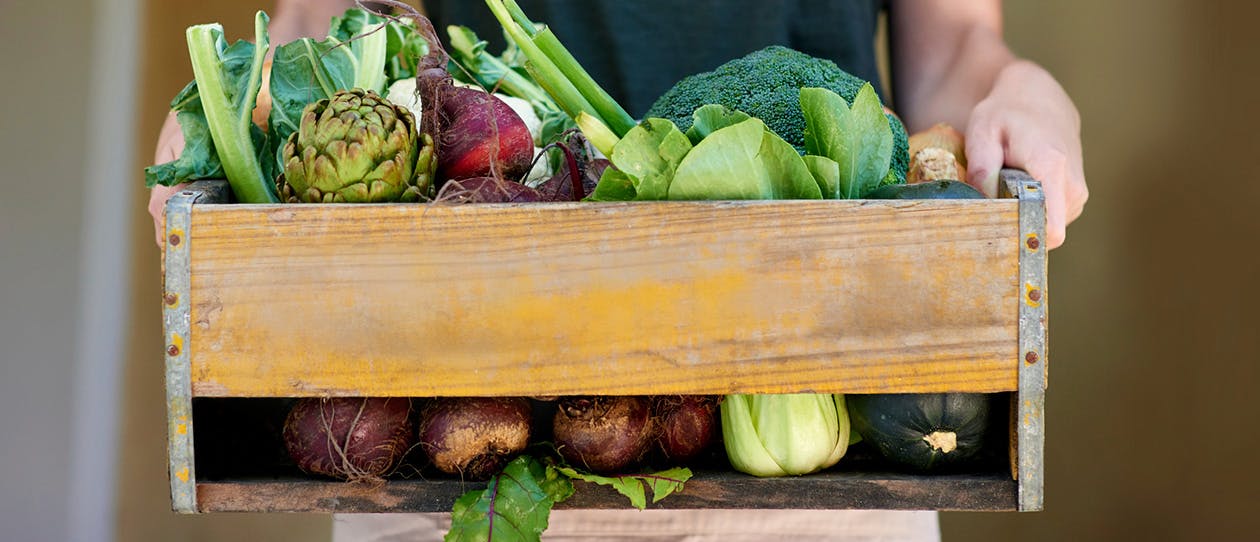What are the major ‘red flag’ foods in terms of sustainability?
Firstly, coffee. Coffee can raise a red flag for sustainability regarding labour practices and environmentally destructive production methods. Conditions for large coffee plantations workers can vary widely, but many are paid less than minimum wage.
To enhance yields on large-scale industrial coffee farms, coffee is grown as a mono-crop, trees are cut down for ‘sun cultivation’, and chemical fertilisers and pesticides are added. These techniques have damaging environmental outcomes, such as biodiversity and habitat loss, soil degradation, and chemical pollution in local waterways.
Environmental problems continue when the coffee is transported long distances and packaged into plastic and aluminium disposable containers – such as those used in coffee pods for modern coffee machines.
Tip
If you’re a coffee pod capsule consumer, look for ‘ecoCaffe’ biodegradable pods and be sure to compost these after use, or direct them into green waste.
Next, seafood. According to the World Wildlife Fund (WWF), the global fishing fleet is currently two to three times larger than that which our oceans can sustainably support. People are currently taking far more fish out of the ocean than can be replaced by those remaining.
This is unsustainable. Contaminated feed, antibiotic use, packaging and large amounts of mercury and heavy metals (from contaminated coastal waters) are amongst other problems with our current seafood procurement practices.
Salmon, for instance, is usually grown in large net pens. From the nets, fish waste and uneaten feed flow out and pollute the surrounding environment. The farmed salmon as a result are highly susceptible to diseases and parasites, such as sea lice. When producers then treat the farmed fish with antibiotics or paraciticides, residuals of chemicals can have a range of negative impacts on consumer health.
Tip
Buy local, seasonal fish – support your local fisherman and buy from markets that offer and wider and fresher range of seafood than supermarkets do.
Finally, Australians eat roughly their own weight in meat every year, about 224g a day compared to an average of 47g a day that’s consumed in developing countries. Raising animals for food generates more greenhouse gas emissions than all the cars, trucks, trains, ships and planes in the world combined.
Tip
Eat less meat but of a higher quality; ask your butcher for free range options or start buying meat from accredited farmers markets
Which trending ‘red flag foods’ should ethically minded consumers should be aware of?
It's commonplace these days to substitute sugar with artificial sweeteners, dairy milk with almond or soy milk, and meats with textured vegetable proteins or imported and processed grains and legumes. The production of these foods can involve substantial amounts of water, transportation and chemicals.
On the social side of things, purchasing food products (eg. quinoa) from countries that were traditionally self-sufficient can actually be taking away from that country’s total collective food bowl.
The best approach is to look at both your consumption and the source of the food:
- Does it need to be consumed in large quantities?
- Can it be sourced locally?
- Was it produced ethically?
Asking these questions makes you a conscious consumer, and has ripple effects up the supply chain, into your social networks and beyond.
What principles ensure we eat sustainably and ethically?
Follow these five ideas, as a start:
- Buy local, seasonal and organic produce
- Grow some of your own food
- Reduce food waste and start a compost bin or worm farm
- Choose ethical and sustainable meat, seafood and coffee
- Avoid packaging and plastic shopping bags
Belinda Bean is the Sustainability Officer at Macquarie University


